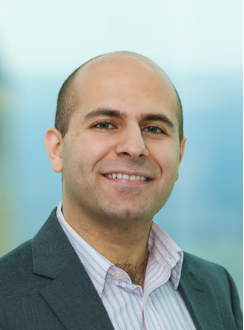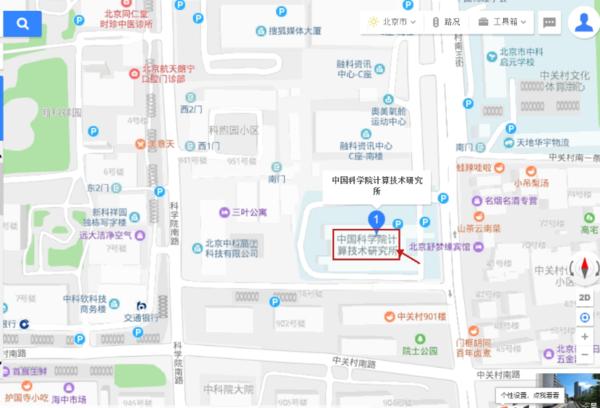ADL115《隐私保护机器学习》开始报名
CCF学科前沿讲习班
The CCF Advanced Disciplines Lectures
CCFADL第115期
主题 隐私保护机器学习
2021年4月24-26日 北京
本期CCF学科前沿讲习班《隐私保护机器学习》,对隐私保护机器学习技术最新研究进展及在各个领域的应用落地案例进行系统性介绍,帮助学员理解隐私保护机器学习的基本概念和问题设定,掌握该领域包括联邦学习在内的一系列前沿技术,并通过实际案例了解该技术在包括金、电商、健康等领域的应用前景,开阔科研视野,增强实践能力。
本期ADL讲习班邀请到了本领域8位来自于著名高校与企业科研机构的重量级专家学者做主题报告。他们将对隐私保护机器学习的数据安全、系统性能、学习效率、算法复杂度、可管理性等技术挑战进行深入浅出的讲解,为听众展示在金融、电商、健康等领域的产学研一体实践案例, 并介绍如何开发隐私计算开源平台等解决人工智能最后一公里落地问题的宝贵经验。
学术主任:范力欣 微众银行
主办单位:中国计算机学会
活动日程:
2021年4月24日 | |
9:00-9:15 | 开班仪式 |
9:15-9:30 | 全体合影 |
9:30-12:00 | 专题讲座1:联邦学习和推荐系统 杨强 香港科技大学教授、微众银行首席人工智能官 |
12:00-13:30 | 午餐 |
13:30-15:00 | 专题讲座2:Building a responsible data economy with data privacy Prof. Dawn Song(UC Berkeley) |
15:00-16:30 | 专题讲座3:Evolutionary Multi-objective Federated Neural Architecture Search Prof. Yaochu Jin(Univ. of Surrey) |
2021年4月25日 | |
9:00-12:00 | 专题讲座4:Scalable Solutions for Privacy-Preserving Machine Learning and Federated Learning Prof. Salman Avestimehr(University of Southern California) |
12:00-13:30 | 午餐 |
13:30-16:30 | 专题讲座5:多方计算从理论到实践 徐葳 清华大学副教授 |
2021年4月26日 | |
9:00-12:00 | 专题讲座6:大规模纵向联邦学习 薄列峰 京东科技硅谷研发中心负责人 |
12:00-13:30 | 午餐 |
13:30-15:00 | 专题讲座7:从数据联邦到联邦学习 童咏昕 北京航空航天大学教授 |
15:00-16:30 | 专题讲座8:生物医药领域的隐私保护机器学习 刘琦 同济大学教授 |
16:30-16:40 | 小结 |
特邀讲者:
杨强 香港科技大学教授、微众银行首席人工智能官
讲者简介:杨强,微众银行首席人工智能官,香港科技大学计算机与工程系讲座教授和前系主任,AAAI-2021大会主席,国际人工智能联合会(IJCAI)理事会前主席,香港人工智能与机器人学会(HKSAIR)理事长,智能投研技术联盟(ITL)主席,ACM TIST 和IEEE TRANS on BIG DATA创始主编,CAAI,AAAI,ACM,IEEE,AAAS等多个国际学会Fellow。领衔全球迁移学习和联邦学习研究及应用,著作包括《迁移学习》,《联邦学习》等。
报告题目:联邦学习和推荐系统
报告摘要:基于联邦学习的隐私计算,是分布式机器学习中解决隐私保护的重要技术方法, 一方面, 在联合建模过程中如何能够把尽量多的数据利用起来, 另一方面, 监管和社会对隐私保护的要求也非常严格, 各种数据保护立法纷纷出台. 联邦学习提出以数据不动模型动,数据可用不可见的方式, 来解决这种两难的困境. 这个报告将全面介绍联邦学习的基本思想,核心技术及其应用领域, 并以金融领域的推荐场景为例,深入剖析联邦学习在营销、信贷、资产管理等金融服务中的实际应用。
Prof. Dawn Song UC Berkeley
讲者简介:Dawn Song is a Professor in the Department of Electrical Engineering and Computer Science at UC Berkeley. Her research interest lies in AI and deep learning, security and privacy, and block chain. She is the recipient of various awards including the MacArthur Fellowship, the Guggenheim Fellowship, the NSF CAREER Award, the Alfred P. Sloan Research Fellowship, the MIT Technology Review TR-35 Award, ACM SIGSAC Outstanding Innovation Award, and Test-of-Time Awards and Best Paper Awards from top conferences in Computer Security and Deep Learning. She is an ACM Fellow and an IEEE Fellow. She is ranked the most cited scholar in computer security (AMiner Award). She obtained her Ph.D. degree from UC Berkeley. She is also a serial entrepreneur and has been named on the Female Founder 100 List by Inc. and Wired25 List of Innovators.
报告题目:Building towards a Responsible Data Economy via Data Privacy
报告摘要:Data is a key driver of modern economy and AI/machine learning, however, a lot of this data is sensitive and handling the sensitive data has caused unprecedented challenges for both individuals and businesses, and these challenges will only get more severe as we move forward in the digital era. In this talk, I will talk about technologies needed for responsible data use including secure computing, differential privacy, federated learning, as well as blockchain technologies for data rights, and how to combine privacy computing technologies and blockchain to building a platform for a responsible data economy, to enable the creation of a new type of asset, i.e., data assets, more responsible use of data and fair distribution of value created from data.
Prof. Yaochu Jin University of Surrey
讲者简介:Yaochu Jin received the B.Sc., M.Sc., and Ph.D. degrees from Zhejiang University, Hangzhou, China, in 1988, 1991, and 1996, respectively, and the Dr.-Ing. degree from Ruhr University Bochum, Germany, in 2001.He is currently a Distinguished Chair, Professor in Computational Intelligence, Department of Computer Science, University of Surrey, Guildford, U.K., where he heads the Nature Inspired Computing and Engineering (NIICE) Group. He was a “Finland Distinguished Professor” of University of Jyvaskyla, Finland, and “Changjiang Distinguished Visiting Professor”, Northeastern University, China. His main research interests include data-driven evolutionary optimization, evolutionary learning, trustworthy machine learning, and morphogenetic self-organizing systems. Dr Jin is presently the Editor-in-Chief of the IEEE TRANSACTIONS ON COGNITIVE AND DEVELOPMENTAL SYSTEMS and the Editor-in-Chief of Complex & Intelligent Systems. He is the recipient of the 2018 and 2021 IEEE Transactions on Evolutionary Computation Outstanding Paper Award, and the 2015, 2017, and 2020 IEEE Computational Intelligence Magazine Outstanding Paper Award. He was named by the Web of Science as “a Global Highly Cited Researcher” in 2019 and 2020. He is a Fellow of IEEE.
报告题目:Evolutionary Multi-objective Federated Neural Architecture Search
报告摘要:Federated learning is a powerful machine learning paradigm for privacy-preserving machine learning. In this talk, I am going to introduce a multi-objective approach to enhancing the performance of federated learning in terms of accuracy, communication efficiency and computational complexity. I’ll start with a brief introduction to evolutionary multi-objective machine learning, followed by a presentation of two evolutionary multi-objective federated learning algorithms for optimizing the architecture of neural network models in federated learning, one for offline, and the other for real-time purposes. Finally, remaining research challenges will be outlined.
Prof. Salman Avestimehr University of Southern California
讲者简介:Salman Avestimehr is a Dean's Professor, the inaugural director of the USC-Amazon Center on Secure and Trusted Machine Learning (Trusted AI), and the director of the Information Theory and Machine Learning (vITAL) research lab at the Electrical and Computer Engineering Department of University of Southern California. He is also an Amazon Scholar at Alexa AI. He received his Ph.D. in 2008 and M.S. degree in 2005 in Electrical Engineering and Computer Science, both from the University of California, Berkeley. Prior to that, he obtained his B.S. in Electrical Engineering from Sharif University of Technology in 2003. His research interests include information theory and coding theory, and large-scale distributed computing and machine learning, secure and private computing, and blockchain systems.Dr. Avestimehr has received a number of awards for his research, including the James L. Massey Research & Teaching Award from IEEE Information Theory Society, an Information Theory Society and Communication Society Joint Paper Award, a Presidential Early Career Award for Scientists and Engineers (PECASE) from the White House (President Obama), a Young Investigator Program (YIP) award from the U. S. Air Force Office of Scientific Research, a National Science Foundation CAREER award, the David J. Sakrison Memorial Prize, and several Best Paper Awards at Conferences. He has been an Associate Editor for IEEE Transactions on Information Theory and a general Co-Chair of the 2020 International Symposium on Information Theory (ISIT). He is a fellow of IEEE.
报告题目:Scalable Solutions for Privacy-Preserving Machine Learning and Federated Learning
报告摘要:Privacy concerns are shaking the Machine Learning (ML) ecosystem. Due to the proliferation of in-home and wearable AI-assisted devices that can continuously collect audio/video/health/financial data, the public is becoming increasingly concerned about who can access their data. Most cloud/data companies would also prefer to limit (or even entirely remove) their direct access to users’ personal data due to various regulatory concerns and the hesitations of users towards adopting their services/devices. As such, Privacy-Preserving Machine Learning (PPML) and Federated Learning (FL) are gaining significant attention. Scaling such approaches to systems with many users is, however, a grand challenge. In this talk, we discuss several key bottlenecks that limit the scalability of the state-of-the-art solutions and present our approach to overcome these barriers. In particular, we present (1) CodedPrivateML that provides significant speedup over cryptographic approaches based on multi-party computing (MPC) for PPML; (2) TurboAggregate that provides the first secure aggregation protocol for FL with near linear complexity; and (3) FedGKT that enables FL of large models over resource-constrained devices.
徐葳 清华大学长聘副教授、金融科技研究院副院长兼区块链研究中心主任
讲者简介:徐葳,清华大学交叉信息研究院长聘副教授,清华大学金融科技研究院副院长兼区块链研究中心主任。专注于交叉学科的分布式系统、大数据和数据安全研究。美国加州大学伯克利分校硕士、博士,师从图灵奖获得者David Patterson教授,宾夕法尼亚大学学士(在清华本科学习两年)。曾获得谷歌、IBM的教授科研奖,获得清华大学“良师益友”特别奖,清华大学先进工作者,北京市师德先锋等称号。在系统、网络、机器学习、光通讯等多领域顶尖会议如SOSP,Sigcomm,EuroSys,ICML,KDD 等发表论文50余篇,并获得DSN,APSys最佳论文奖。入职清华前,曾在谷歌总部工作,负责基础架构可靠性方面的研发。徐葳教授重视科技成果产业转化,孵化了专注于隐私计算平台的企业华控清交。
报告题目:多方计算从理论到实践
报告摘要:讲座针对数据流通共享难的问题,介绍几类能够做到数据“可用不可见”的技术。首先从基础技术思路和系统架构两方面对当前的主流技术方法进行介绍。这一部分主要模块包括:基于密码学的方法与其挑战,以及基于联邦学习的方法与其挑战。在此基础上,将结合我们在多方计算系统的工程化实现的经验,深入探讨从大数据系统设计角度对于此类系统的性能、可管理性等方面的讨论。最后,我们介绍我们在多方计算编程接口方面的一些探索。
薄列峰 京东科技硅谷研发中心负责人
讲者简介:薄列峰博士现担任京东科技硅谷研发中心负责人,从事前沿人工智能技术的研发与落地。加入京东科技前,他曾在亚马逊西雅图总部担任Principal Scientist,从事Amazon Go无人零售店的算法研发与落地。薄列峰博士研究范围包括机器学习,深度学习,计算机视觉,机器人等多个领域,在国际顶级会议和期刊上合计发表论文80余篇,担任过NeurIPS、CVPR、ICCV、ECCV、AAAI、SDM等顶级人工智能会议程序委员会委员。
报告题目:大规模纵向联邦学习
报告摘要:设计既能保护数据隐私又具有高效率的纵向联邦学习框架是业界面临的突出挑战。在这个tutorial里,我们将介绍东科技在大规模纵向联邦学习方向的探索与实践。第一部分介绍分布式联邦随机森林,该算法通过分布式架构并行提速建树过程,能支持千万级别的训练数据规模。第二部分介绍联邦核学习,该算法将本地特征映射至核空间完成多方联合建模,无需绑定同态加密,因而在速度上有极大的优势。第三部分介绍异步纵向联邦学习,该算法解决了大规模分布式计算中的异步通信问题,并使用多种方差递减算法大大提高计算效率;第四部分介绍纵向联邦深度学习,该算法可以支持各种深度学习在纵向联邦学习情况下的使用。
童咏昕 北京航空航天大学教授
讲者简介:童咏昕,北京航空航天大学计算机学院教授,博士生导师,国家自然科学基金优秀青年基金获得者。2014年于香港科技大学获计算机科学与工程学博士学位,随后留校担任研究助理教授,2015年入选北京航空航天大学“卓越百人计划”并加入软件开发环境国家重点实验室工作。目前主要研究方向包括:联邦学习、时空大数据分析与处理、众包计算、强化学习与群体智能等。目前共发表学术论文80余篇,其中以第一/通讯作者在CCF A类期刊/会议上持续发表(含接受)论文50余篇,并先后主持了国家重点研发计划课题等10余项科研项目。曾获阿里巴巴集团评选的首届“达摩院青橙奖”、数据库领域国际会议VLDB 2014“杰出演示系统奖”和数据挖掘领域国际竞赛 KDD Cup 2020“强化学习赛道分配学习比赛冠军”。担任国际期刊《IEEE Transactions on Big Data》的编委和多个CCF A类会议的程序委员会委员;是CCF杰出讲者、CCF会员与分部工作委员会主任助理、“CCF-滴滴大数据联合实验室”学术委员会委员和CCF数据库专业委员会委员。
报告题目:从数据联邦到联邦学习(From Data Federation to Federated Learning)
报告摘要:随着近年来我国“网络安全法”与欧盟“通用数据保护条例”(General Data Protection Regulation,GDPR)的落地实施,重视数据隐私和安全已愈发成为全球各国的共识。联邦学习作为一种面向隐私安全的通用机器学习框架逐步被AI业界所广泛认同,其旨在帮助多个用户或机构在原始数据不出本地的前提下进行安全的分布式联合模型训练。为确保学习过程的隐私安全,对其所使用数据的隐私保护必不可少。本报告首先从数据库的视角回顾传统联邦数据库概念,介绍大数据场景下热门的数据联邦技术,并阐述其与联邦学习的区别联系,随后介绍从隐私保护的数据挖掘到联邦学习的发展历程。最后,报告也将介绍本团队的最新相关研究工作与应用示范,并对未来发展方向进行展望。
刘琦 同济大学长聘教授
讲者简介:刘琦, 同济大学生命科学与技术学院生物信息系长聘教授 (Tenured Professor),博士生导师。长期致力于基于人工智能和高通量组学数据分析的肿瘤精准用药、药物发现、肿瘤免疫治疗及基因编辑领域的方法学和计算平台开发,推进人工智能和组学数据分析的结合及临床应用。在Science Advances, Genome Biology,Nature Communications, Genome Medicine, Nucleic Acids Research等发表学术论文,受邀在Trends in Molecular Medicine, Trends in Biotechnology, Trends in Pharmacological Science,WIREs Computational Molecular Science等发表综述和评述论文。获2017年第七届吴文俊人工智能自然科学技术奖三等奖、获2018年药明康德生命化学奖、先后入选上海市浦江人才,启明星人才,曙光人才,入选教育部“青年长江学者”。
报告题目:生物医药领域的隐私保护机器学习
报告摘要:联邦学习是近年提出的一种新的合法链接数据孤岛进行数据共享计算的协作范式,相比于传统数据加密共享方法,联邦学习基于数据可用不可见的理念,通过聚合所有用户的加密模型参数,在数据不出本地的情况下进行模型协同训练,能够更好的面对数据共享领域出现的新的问题和法律法规约束。联邦学习在各个方面均有广泛的应用前景,本报告首先将对于生物医药领域的隐私计算及联邦学习应用做一个系统的回顾和介绍;其次将介绍课题组在药物设计领域应用联邦学习进行药物协同发现的应用案例。具体来说,我们开发了基于联邦学习的协作药物发现平台FL-QSAR。提供了一种有效的药物协同发现的解决方案,打破了传统QSAR建模时不同制药机构之间的数据无法直接共享的壁垒,有助于在隐私保护的前提条件下进行协同药物发现,并适合于推广和应用到生物医学隐私计算的其他相关领域。
学术主任:范力欣 微众银行人工智能首席科学家
简介:范力欣博士是微众银行人工智能首席科学家和联邦学习产业生态发展联盟理事长,他的研究领域包括机器学习和深度学习,计算机视觉和模式识别,图像和视频处理等。范博士是70多篇国际期刊和会议文章作者,他还是在美国,欧洲和中国提交的百余项专利的发明人,和IEEE可解释人工智能标准制定组主席。范博士长期参加NIPS/NeurIPS,ICML,CVPR,ICCV,ECCV,IJCAI等顶级人工智能会议, 并主持举办了包括联邦学习在内的各个技术领域研讨会。
时间:2021年4月24-26日
地点:北京•中国科学院计算技术研究所一层报告厅(北京市海淀区中关村科学院南路6号)
报名须知:
1、报名费:CCF会员2800元,非会员3600元。食宿交通费用自理。根据交费先后顺序,会员优先的原则录取,额满为止。
2、报名截止日期:2021年4月24日。报名请预留不会拦截外部邮件的邮箱。
3、咨询邮箱 : adl@ccf.org.cn
缴费方式:
在报名系统中在线缴费或者通过银行转账
银行转账(支持网银、支付宝):
开户行:招商银行北京海淀支行
户名:中国计算机学会
账号:110943026510701
请务必注明:姓名+ADL115
报名缴费后,报名系统中显示缴费完成,即为报名成功。
报名方式:请选择以下两种方式之一报名:
1、扫描(识别)以下二维码报名:
2、报名链接:https://conf.ccf.org.cn/ADL115


















所有评论仅代表网友意见